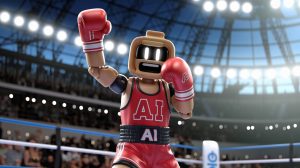Android Craves a Fragmentation Fix: Is Ice Cream Sandwich Tasty Enough?
![]() With its undeniable dominance, Android still faces a lurking dilemma that could threaten its market leadership: fragmentation. Android has gazillion of hardware contractors, which makes implementing updates a monumental task—an advantage on the Apple side since they are the sole maker of iPhone software. To hopefully give their users a tasty treat and ease fragmentation issues, Google will introduce Android 4.0 Ice Cream Sandwich to Android-powered devices.
With its undeniable dominance, Android still faces a lurking dilemma that could threaten its market leadership: fragmentation. Android has gazillion of hardware contractors, which makes implementing updates a monumental task—an advantage on the Apple side since they are the sole maker of iPhone software. To hopefully give their users a tasty treat and ease fragmentation issues, Google will introduce Android 4.0 Ice Cream Sandwich to Android-powered devices.
The news of Android 4.0 ICS has triggered existing handset owners to ask if they, too, would be able to bite at this seemingly hot item. See if your device would let you experience the flavor; here is a list of potential gadgets that might welcome the techiest ice cream in their plate:
Samsung: Galaxy Nexus will definitely receive updates soon.
Motorola: Droid Razr is a shoo-in for upgrade.
HTC: will most likely upgrade their latest devices in the market that include Sensation 4G, Evo 3D, and Amaze 4G and the older Evo 4G and 2G.
Sony Ericsson: all phones released in 2011, including Xperia will bite into ICS.
LG: no statement released yet, but is rumoured to only upgrade the latest Optimus 3G.
Nexus One: the odd and bad news that Nexus One users won’t be able to taste ICS, when in fact they are sisters with Android being under one roof that is Google. But, ZDnet reports that it’s just a matter of weeks and Nexus One will get ICS. Its cousin the Galaxy S is also expected to get the ICS update.
With fragmentation, Google allows manufacturers to gain more control on Android OS. The entrée of Android 4.0 ICS in the picture is a statement of confidence and that they are indeed serious in equipping devices with better software.
But not everyone is raving about Android 4.0 Ice Cream Sandwich, noting that Android’s primary problem that hinders a breakthrough market release is not fragmentation, but differentiation. In a web blog, Richard Shin, an analyst at DisplaySearch says: “The main challenge in the tablet market continues to be differentiation. There are still too many tablets offering similar usage experiences, making it difficult to compete with the entrenched player, Apple and its iPad, and leading to a price-driven market.”
For an average person, being able to access a few apps and having an “unbreakable” smartphone are all that matter. Usability still is the number one priority. Those who are really after solid updates form the geekier faction of users. However, when we talk of solving fragmentation on Android, we are looking at long-term effect on having something that could support the ever-changing demands of users and safeguarding your smartphones from intruders such as the Netflix-faking Trojan that took advantage of Android’s fragmentation weakness.
A message from John Furrier, co-founder of SiliconANGLE:
Your vote of support is important to us and it helps us keep the content FREE.
One click below supports our mission to provide free, deep, and relevant content.
Join our community on YouTube
Join the community that includes more than 15,000 #CubeAlumni experts, including Amazon.com CEO Andy Jassy, Dell Technologies founder and CEO Michael Dell, Intel CEO Pat Gelsinger, and many more luminaries and experts.
THANK YOU









